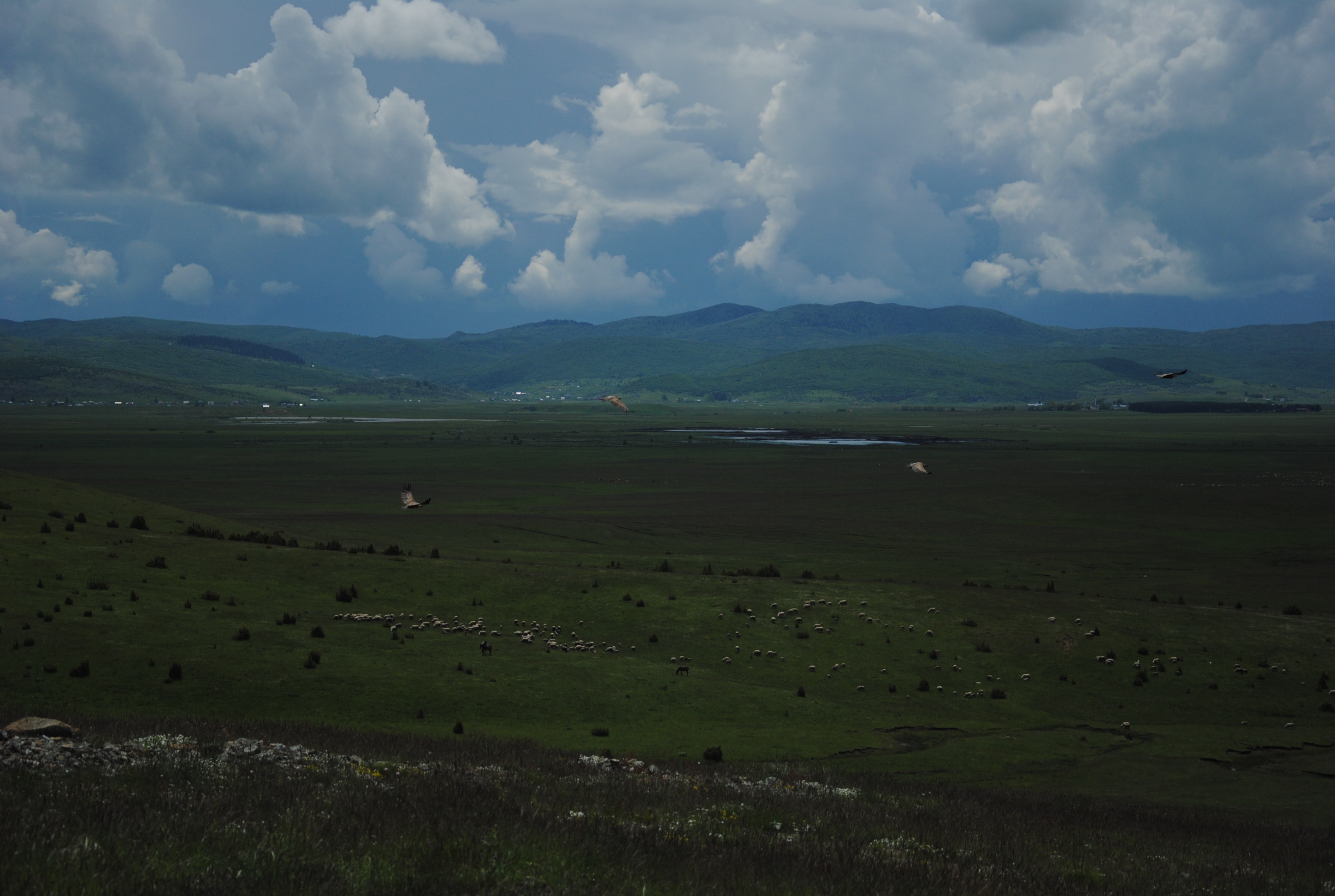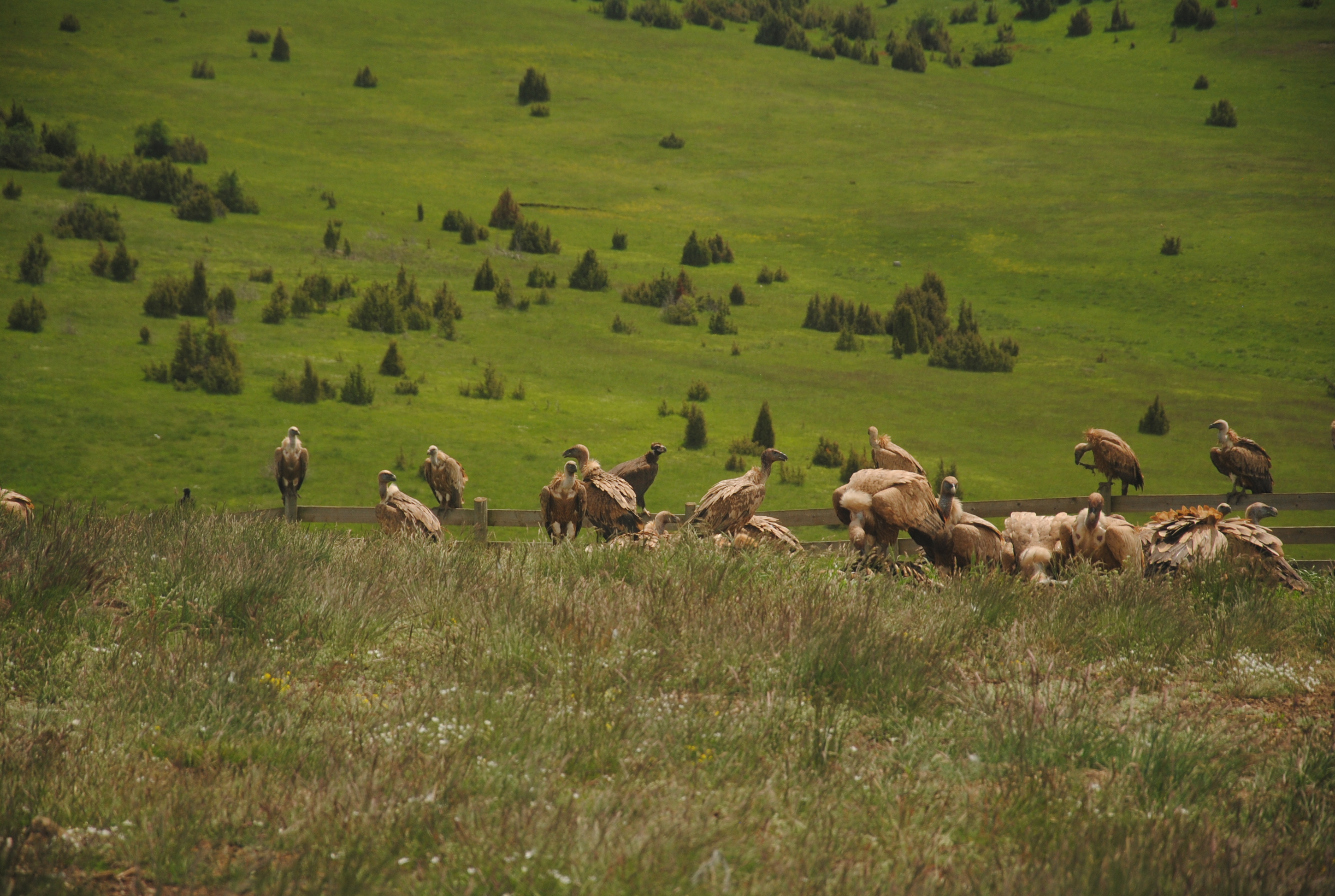Sjenica, Peštersko polje, June 2, 2023 - As part of
the "EU for Green Agenda in Serbia" initiative, representatives of
the Embassy of Sweden, the Ministry of Environmental Protection and the United
Nations Development Program (UNDP), together with experts from the Institute
for Nature Conservation of Serbia and the protected area manager's nature guard
service, visited the special nature reserve "Peštersko polje",
located on the territory of the municipalities of Tutin and Sjenica in Western
Serbia. The purpose of this visit was to identify measures to improve the
resilience of “Peštersko polje” to the impacts of climate change and to explore
the potential of this ecosystem as a pilot habitat for the application of
nature-based solutions* to protect wetlands in Serbia more effectively.

During this field visit, participants visited four sites in Peštersko polje:
Lake Karamajdani, the peat bog, Trojan Peak, and the feeding station for birds
of prey and vultures. On this occasion, they talked with representatives of the
Sjenica Tourist Organization, which manages this protected area, about possible
further cooperation through specific activities and ways to improve the
protection and conservation of this wetland, which is of particular importance
for nature conservation in the Republic of Serbia.
The presence of more than 120 species of birds has been noted in the Pešter field, including griffon vultures, which nest in the gorges of the Uvac and Mileševka rivers in the immediate vicinity and frequently stay in the Pešter area in search of food. There are several types of aquatic and wetland habitats here, as well as the largest preserved peatland in Serbia, which was formed on a karst field. Peatlands are extremely rare and endangered wetlands, not only in Serbia, but also in the region. They represent an important ecosystem, both because of the diversity of plant and animal species (biodiversity) and the fact that they naturally purify water for drinking and watering livestock, and mitigate the negative effects of climate change by storing carbon. The main threats to the survival of this type of wetlands are drainage, peat extraction and climate change.

Serbia is a member of the Ramsar Convention and currently has 11 officially declared wetlands of international importance. Peštersko polje has been on the list of Ramsar sites since 2006 and was declared a special nature reserve in 2015. A new initiative, supported by the Swedish government to improve the protection of these natural ecosystems, aims to preserve biodiversity and improve resilience to climate change through innovative approaches that incorporate nature-based solutions.
This visit was organized within the framework of the initiative " Protecting and investing in biodiversity and water for enhanced climate resilience", under the auspices of the project "EU for Green Agenda in Serbia" which, with the technical and financial support of the European Union and in partnership with the Ministry of Environmental Protection, is implemented by UNDP in cooperation with the Embassy of Sweden and the European Investment Bank (EIB), with additional funding from the Governments of Sweden, Switzerland and Serbia.